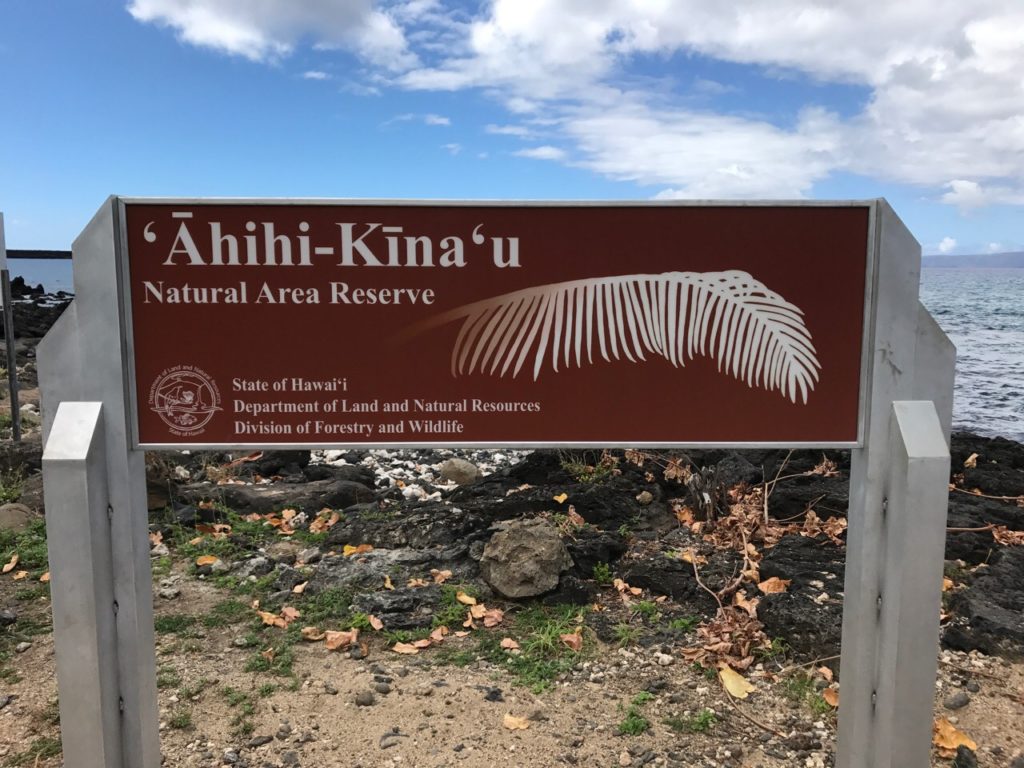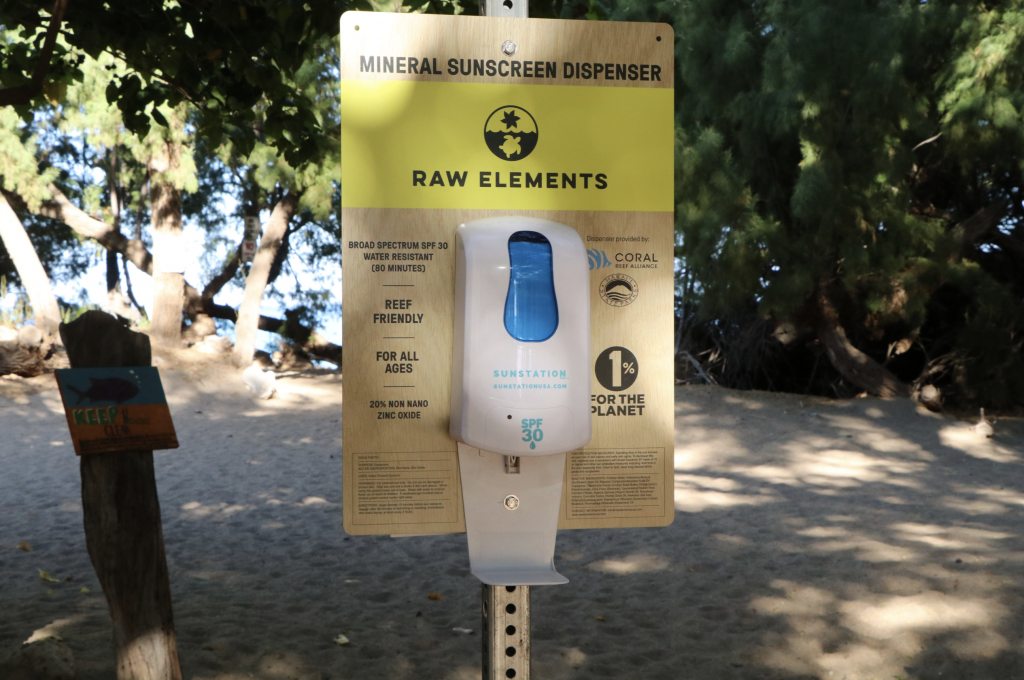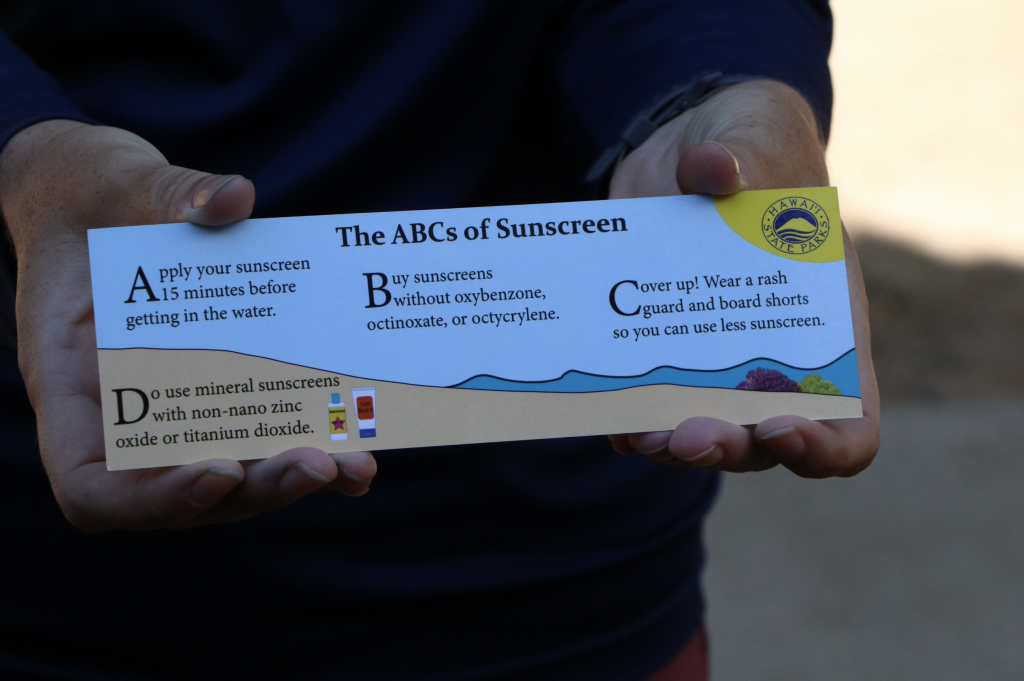Maui County enacts historic law banning non-mineral sunscreens
[ad_1]
Maui County continues to lead efforts to protect the environment with the passage of bill banning the sale, distribution, or use of non-mineral sunscreens.
Bill 135 was introduced by Maui County Councilor Kelly Takaya King and signed as Ordinance 5306 on December 6 by Maui Mayor Michael Victorino. It will come into force on October 1, 2022.
According to King, the bill recognizes that several chemicals in non-mineral sunscreens were recently shown to pose a threat to the health of coastal waters, coral reefs, and other marine animals.

“Non-mineral sunscreens are an aggressive pollutant,” said Councilor King. “Our coral reefs are our first line of defense against erosion from sea level rise and, in addition to the threats of climate change and ocean warming, storm runoff, and development and seepage from sewage injection wells, chemical sunscreens are causing great damage to our reef systems. “And marine life. This regulation is an important step in protecting the health and resilience of our reef and marine life by removing a significant environmental stressor. ”
Zinc oxide and titanium dioxide are known as “mineral sunscreens”. Non-mineral sunscreens include chemicals like octinoxate, octocrylene, and oxybenzone. Of the 16 active ingredients currently used as UV filters in sunscreen products, only zinc oxide and titanium dioxide are generally recognized as safe and effective (GRASE) by the US Food and Drug Administration.
The administration of the new bans is the responsibility of the district office for environmental management. Selling, distributing, or using prohibited non-mineral sunscreens will be considered a violation of the Maui County Code and will be subject to penalties and enforcement procedures. The fines are paid into the district environmental protection and sustainability fund.
“Mahalo to Maui County Council for passing this important piece of legislation, and to the Chair of the Climate Resilience, Resilience and Environment Committee, Kelly King, for introducing Act 135. I signed the bill because it is an important step in revitalizing the environment Health is “of our coral reefs,” said Mayor Michael Victorino. “I am very proud that the County of Maui is leading efforts to protect our endangered coastal marine ecosystem.”
“Regulation 5306 is part of the overall goal of making our tourism industry more environmentally sustainable and less damaging to our islands’ biodiversity,” added King. “There is a growing movement of skin care and beauty product companies looking to make a positive impact on the planet. This new law supports this movement towards conscious consumption by removing harmful products from the local market and encouraging consumers to opt for truly reef-safe mineral sunscreens. “
“Our reefs are priceless,” said King. “Coral reefs are essential to the livelihood of many Maui Counties, maintaining cultural practices, and protecting coastal areas. Our marine environment offers opportunities for relaxation, inspiration and scenic beauty for residents and visitors. We have to do everything necessary to preserve and protect it. ”
The bill was supported by researchers, environmental organizations, local youth, the county government and the Ministry of Land and Natural Resources.

Jeff Bagshaw of the DLNR Division of Forestry and Wildlife became one of the earliest proponents of banning non-mineral sunscreens while working at the hihi Kīnaʻu Natural Area Reserve in South Maui. He testified before the county council in support of the Maui ban.
“I am delighted that Maui is leading the way in deterring harmful chemicals from our oceans,” said Bagshaw. “We look forward to a time when 55-gallon barrels of chemicals that kill and damage coral reefs are no longer an issue. That’s the amount of sunscreen that experts say is washed into Maui’s coastal waters every day. ”
His DLNR colleague Peter Landon, who manages the ʻĀhihi KÄ«naÊ»u nature reserve, was also an early supporter of the total ban on non-mineral sunscreens. “You can see the shine of the chemicals up in the water column with your own eyes,” he said. “Imagine the impact this stuff is having on the coral reef ecosystem. I and many others applaud the county council for this landmark move. ”
Public information and education programs are planned to inform residents and visitors about the new regulation. The increase in the number of free sunscreen dispensers and the development of a trade-in sunscreen program to replace previously purchased chemical sunscreens with approved mineral sunscreens are further discussed options to support the successful implementation of this regulation.

Students from the KÄ«hei Charter School have been involved in researching this topic and are working on developing resources to educate the public about the new sun protection law. “Using practical, interactive methods, our team worked with science classes from the 7th Ocean Center Marine Institute. “It was inspiring to see the students’ commitment and willingness to join efforts to protect our coral reefs and educate the community.”
Dr. Craig Downs, a leading expert in the field whose pioneering research linked the use of non-mineral sunscreens to coral reef decline, recognized the historical nature of the law.
“Maui’s Ordinance 5306 is the first in the United States to protect its natural resources from all potentially polluting petrochemical sunscreen ingredients and only allow mineral sunscreens,” Downs said. “This bold move should inspire governments around the world that wise conservation measures can help make tourism environmentally sustainable and profitable while ensuring the conservation of one of its most precious natural resources.”

Councilor King added: “I commend and thank the council, the mayor and all supporters of this courageous action, which is in line with the recently passed resolution of the council to protect biodiversity.”
As the only Maui resident to attend the United Nations global climate change conference in November, King was empowered by District Resolution 21-166 and a Mayor’s proclamation to follow the Edinburgh Declaration on the Global Framework for Biodiversity on behalf of the District of Maui 2020 to sign.
[ad_2]


Comments are closed.